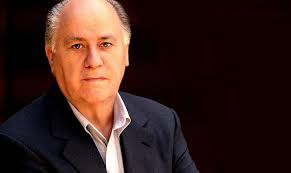- Home
- Billionaires
- Investing Newsletters
- 193CC 1000
- Article Layout 2
- Article Layout 3
- Article Layout 4
- Article Layout 5
- Article Layout 6
- Article Layout 7
- Article Layout 8
- Article Layout 9
- Article Layout 10
- Article Layout 11
- Article Layout 12
- Article Layout 13
- Article Layout 14
- Article Sidebar
- Post Format
- pages
- Archive Layouts
- Post Gallery
- Post Video Background
- Post Review
- Sponsored Post
- Leadership
- Business
- Money
- Small Business
- Innovation
- Shop
Recent Posts
Bill Gates: The Visionary Who Changed the World

Bill Gates, one of the most recognized names in the world of technology and philanthropy, is a man whose influence extends far beyond the realms of software development. Born William Henry Gates III on October 28, 1955, in Seattle, Washington, he grew up in an upper-middle-class family. His father, William H. Gates Sr., was a prominent lawyer, while his mother, Mary Maxwell Gates, served on the board of directors for First Interstate BancSystem and the United Way. From an early age, Gates exhibited a keen interest in computing and technology, which would go on to shape his entire life and ultimately impact the world at large.
Gates attended Lakeside School, a private preparatory school where he was first introduced to computers. It was here that he wrote his first computer program on a General Electric computer. Fascinated by the potential of computing, he and his close friend Paul Allen spent countless hours experimenting with computer systems, pushing boundaries, and learning through trial and error. Their shared passion led to the founding of Microsoft in 1975, when Gates was just 19 years old. Gates dropped out of Harvard University, where he had enrolled in 1973, to pursue this venture full-time—a decision that proved to be one of the most consequential in the history of technology.
Microsoft’s mission was to place “a computer on every desk and in every home.” Under Gates’s leadership, the company developed a number of successful software products, including the Windows operating system, which revolutionized personal computing. Windows became the dominant operating system globally, and Microsoft grew into a tech behemoth. Gates’s vision, business acumen, and relentless drive made him one of the wealthiest individuals in the world. His management style was known to be intense; he was deeply involved in the technical and strategic aspects of the company and had a reputation for demanding excellence.
By the 1990s, Microsoft had become synonymous with computing. Gates’s success, however, came with scrutiny. The U.S. government filed an antitrust lawsuit against Microsoft in 1998, accusing it of engaging in anti-competitive practices. The company was found to have violated antitrust laws, and the case led to a settlement that imposed various restrictions on its business practices. Though the case was a legal and public relations challenge, Microsoft remained strong, and Gates began to shift his focus to broader pursuits.
In 2000, Gates stepped down as CEO of Microsoft and appointed Steve Ballmer as his successor. Gates assumed the role of Chief Software Architect and started dedicating more time to philanthropy. Alongside his then-wife, Melinda, he co-founded the Bill & Melinda Gates Foundation, now one of the world’s largest private charitable foundations. The foundation has a wide-ranging agenda, including global health, poverty alleviation, education, and access to information technology. Gates has donated tens of billions of dollars to causes such as eradicating polio, combating malaria, and improving educational outcomes in the United States.
Bill Gates’s transition from tech titan to humanitarian has been one of the most significant aspects of his legacy. His approach to philanthropy is characterized by data-driven solutions, long-term planning, and collaboration with governments and organizations. The foundation’s efforts in funding vaccine distribution, particularly in underserved areas, have saved millions of lives. Gates’s commitment to tackling complex global problems has earned him both praise and criticism. Some view him as a benevolent visionary, while others question the influence and accountability of billionaire philanthropy.
Outside of his work, Gates has cultivated interests in reading, science, and climate change. He is known for his annual book recommendations and his belief in the power of learning and intellectual curiosity. In recent years, he has become a vocal advocate for addressing climate change, investing in clean energy solutions, and supporting innovations that aim to reduce carbon emissions. His 2021 book, How to Avoid a Climate Disaster, outlines practical strategies for achieving net-zero emissions and emphasizes the role of innovation in solving the crisis.
In 2020, as the COVID-19 pandemic unfolded, Gates found himself in the public eye once again. Having previously warned about the threat of a global pandemic in a 2015 TED Talk, Gates became a key figure in discussions around pandemic preparedness and response. The Gates Foundation played an important role in funding diagnostics, treatments, and vaccine efforts. Despite his contributions, Gates also became the target of conspiracy theories, reflecting the broader mistrust of elite figures in a highly polarized world.
In 2021, Bill and Melinda Gates announced their divorce after 27 years of marriage. Despite the personal change, both have committed to continuing their philanthropic work together through the foundation. Gates’s personal life, once largely private, came under media scrutiny during this time. Nonetheless, he remains focused on his goals of improving public health, addressing climate change, and supporting innovation.
Today, Bill Gates is no longer directly involved in Microsoft’s day-to-day operations but continues to serve as an advisor. He devotes most of his time to philanthropy, research, and advocacy. His life story is a testament to the power of vision, perseverance, and reinvention. From a young computer prodigy to a global philanthropist, Gates has played a pivotal role in shaping the modern world. His legacy is not only defined by Microsoft but also by his commitment to using his wealth and influence to make a positive difference.
Bill Gates’s journey is a compelling narrative of ambition, success, controversy, and transformation. He remains one of the most influential figures of the 21st century, and his work will likely have a lasting impact for generations to come. Whether admired or criticized, Gates’s contributions to technology and society are undeniable, and his story continues to evolve as he addresses the world’s most pressing challenges with an unwavering belief in human ingenuity.
- American entrepreneur
- antitrust case
- Artificial Intelligence
- Bill Gates
- Billionaire
- book recommendations
- business strategy
- charity
- Clean Energy
- Climate Change
- computing pioneer
- corporate ethics
- Covid-19
- digital age
- digital revolution
- education reform
- Entrepreneur
- environmentalism
- Future of Technology
- Gates Foundation
- Global Health
- Global influence
- Harvard dropout
- Humanitarian
- Information Technology
- Innovation
- malaria eradication
- Microsoft
- net-zero emissions
- pandemic response
- Paul Allen
- personal computing
- Philanthropy
- polio
- Public Health
- reading habits
- Seattle
- Silicon Valley
- Software
- Software Engineer
- Steve Ballmer
- Sustainable Development
- sustainable innovation
- Tech Mogul
- Technology
- TED Talk
- Vaccine development
- Visionary Leader
- Wealth Distribution
- Windows
- world changer
Recent Posts
Categories
- 193 Countries Consortium Partner1
- 193cc Digital Assets2
- 5G1
- Aerospace & Defense48
- AI37
- Arts3
- Banking & Insurance11
- Big Data3
- Billionaires1,274
- Boats & Planes1
- Business332
- Careers13
- Cars & Bikes79
- CEO Network1
- CFO Network17
- CHRO Network1
- CIO Network1
- Cloud10
- CMO Network18
- Commercial Real Estate7
- Consultant1
- Consumer Tech194
- CxO1
- Cybersecurity73
- Dining1
- Diversity, Equity & Inclusion4
- Education7
- Energy8
- Enterprise Tech29
- Events11
- Fintech1
- Food & Drink2
- Franchises1
- Freelance1
- Future Of Work2
- Games149
- GIG1
- Healthcare79
- Hollywood & Entertainment203
- Houses1
- India’s 1000 Richest1
- Innovation46
- Investing2
- Investing Newsletters4
- Leadership65
- Lifestyle11
- Manufacturing1
- Markets20
- Media327
- Mobile phone1
- Money13
- Personal Finance2
- Policy569
- Real Estate1
- Research6
- Retail1
- Retirement1
- Small Business1
- SportsMoney42
- Style & Beauty1
- Success Income1
- Taxes2
- Travel10
- Uncategorized13
- Vices1
- Watches & Jewelry2
- world's billionaires1,243
- Worlds Richest Self-Made Women2
Related Articles
Mark Zuckerberg: The Architect of the Social Media Revolution
Mark Zuckerberg, the co-founder and CEO of Facebook (now Meta Platforms Inc.),...
By 193cc World's BillionairesApril 30, 2025Zhong Shanshan: The Lone Wolf Billionaire of China
Zhong Shanshan, often referred to as the “Lone Wolf” of China’s business...
By 193cc World's BillionairesApril 30, 2025Sergey Brin: The Innovator Who Helped Shape the Digital Age
Sergey Brin, co-founder of Google and one of the pivotal figures in...
By 193cc World's BillionairesApril 30, 2025Amancio Ortega: The Fashion Titan Behind Zara’s Global Empire
Amancio Ortega, the enigmatic founder of the Inditext Group and the visionary...
By 193cc World's BillionairesApril 30, 2025














Leave a comment